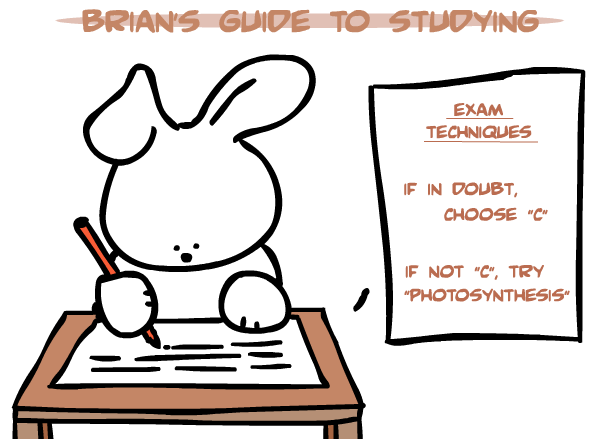
I read some powerpoints and from wiki. Since im not taking Algeria crisis as my chosen essay, i didnt focus on this topic area. But I want to know some of the event that happened during the crisis.
The Algerian War (French: Guerre d'Algérie; 1954–1962), also known as Algerian War of Independence, led to Algeria's independence from France. An important decolonization war, it was a complex conflict characterized by guerrilla warfare, maquis fighting, terrorism against civilians, use of torture on both sides and counter-terrorism operations by the French Army. Effectively started by members of the National Liberation Front (FLN) on 1 November 1954 during the Toussaint Rouge ("Red All Saints' Day"), the conflict shook the French Fourth Republic's (1946–58) foundations and led to its collapse.
Because of the instability of the French parliament, the French Fourth Republic was dissolved with Charles de Gaulle's return to power during the May 1958 crisis and his subsequent founding of the Fifth Republic and the establishment of a new Constitution constructed by himself and his Gaullist followers. De Gaulle's return to power was supposed to ensure Algeria's continued occupation and integration with the French Community, which had replaced the French Union which gathered France's colonies.
The Algerians chose independence and France engaged in negotiations with the FLN, leading to the March 1962 Evian Accords which resulted in the independence of Algeria. The Évian Accords comprise a treaty which was signed on March 18, 1962 in Évian-les-Bains, France by France and the F.L.N. (Front de Libération nationale). The Accords put an end to the Algerian War with a formal cease-fire proclaimed for March 19, and formalized the idea of cooperative exchange between the two countries.
The Algerian war was a founding event in Modern Algerian history. It left long-standing scars in both French and Algerian society, and still affects some segments of society in both countries to this day. After the 1997 legislative elections, won by the Socialist Party (PS), the National Assembly officially acknowledged in June 1999, 37 years after its end, that a "war" had taken place;while the Paris massacre of 1961 was recognized by the French state only in October 2001; on the other hand the Oran massacre of 1962 by the FLN has not been recognized yet by the Algerian state. Relations between France and Algeria are still deeply marked by this conflict and its aftermath.
The Paris massacre of 1961 refers to a massacre in Paris on 17 October 1961, during the Algerian War(1954–62). Under orders from the head of the Parisian police, Maurice Papon, the French police attacked an unarmed and peaceful demonstration of some 30,000 Algerians. The French government acknowledged 40 deaths in 1998, although there are estimates of up to 200.
Conquest of Algeria
1830 - French invaded Algiers
Officially annexed in 1834, Algeria was divided the same year into three French departments, Alger, Oran and Constantine. Under the Second Empire (1852–1871), the Code de l'indigénat (Indigenous Code) was implemented by the senatus consulte of July 14, 1865.
Algerian nationalism
1926- Algerians (natives and Europeans altogether) took part in World War I, fighting for France. Hadj Abd el-Kadir had spearheaded the resistance against the French in the first half of the 19th century and a member of the directing committee of the French Communist Party (PCF).
1937- The independent party was dissolved and its leaders were charged with illegal reconstitution of a dissolved league, leading to Messali Hadj's foundation of the Parti du peuple algérien (Algerian People's Party, PPA), which this time no longer espoused full independence, but only an extensive autonomy.
1939- This new party was again dissolved.
1938- independent leader Ferhat Abbas founded the Algerian Popular Union, while writing in
1st November 1954 - independent leader Ferhat Abbas founded the Algerian Popular Union in 1938, while writing in 1943 the Algerian People's Manifest. From Cairo, the FLN broadcast a proclamation calling on Muslims in Algeria to join in a national struggle for the "restoration of the Algerian state - sovereign, democratic and social - within the framework of the principles of Islam.”
The FLN
After the collapse of the MTLD, Messali Hadj formed the leftist Mouvement National Algérien (MNA), which advocated a policy of violent revolution and total independence similar to that of the FLN. The ALN, the military wing of the FLN, subsequently wiped out the MNA guerrilla operation, and Messali Hadj's movement lost what little influence it had had in Algeria. However, the MNA gained the support of many Algerian workers in France through the Union Syndicale des Travailleurs Algériens (Union of Algerian Workers). The FLN also established a strong organization in France to oppose the MNA. "Café wars," resulting in nearly 5,000 deaths, were waged in France between the two rebel groups throughout the years of the War of Independence.
As the FLN campaign of influence and terror spread through the countryside, many European farmers in the interior (called Pieds-Noirs) sold their holdings and sought refuge in Algiers and other Algerian cities. After a series of bloody, random massacres and bombings by Muslim Algerians in several towns and cities, the French Pieds-Noirs and urban French population began to demand that the French government engage in sterner countermeasures, including the proclamation of a state of emergency, capital punishment for political crimes, denunciation of all , and most ominously, a call for 'tit-for-tat' reprisal operations by police, military, and para-military forces. Colon vigilante units, whose unauthorized activities were conducted with the passive cooperation of police authorities, carried out ratonnades (literally, rat-hunts, raton being a racist term for designating Muslim Algerians) against suspected FLN members of the Muslim community. The FLN terror and intimidation campaign gave these hunts strong motivation and starting points.
Philippeville massacre
The killing by the FLN and its supporters of 123 people, including 71 French, including old women and babies, shocked Jacques Soustelle into calling for more repressive measures against the rebels. The government claimed it killed 1,273 guerrillas in retaliation; according to the FLN and to The Times magazine, 12,000 Algerians were massacred by the armed forces and police, as well as Pieds-Noirs gangs. Pied-Noir is a term used to refer to colonists of Algeria until the end of the Algerian War in 1962. Specifically, Pieds-Noirs were French nationals, including those of European descent, Sephardic Jews, and settlers from other European countries such as Spain, Italy, and Malta, who were born in Algeria.
1956- Lacoste had the FLN external political leaders arrested and imprisoned for the duration of the war. This action caused the remaining rebel leaders to harden their stance.
France took a more openly hostile view of President Gamal Abdel Nasser's material and political assistance to the FLN, which some French analysts believed was the most important element in sustaining continued rebel activity in Algeria. This attitude was a factor in persuading France to participate in the November 1956 British attempt to seize the Suez Canal during the Suez Criss.
Battle of Algiers
To increase international and domestic French attention to their struggle, the FLN decided to bring the conflict to the cities and to call a nationwide general strike. The most notable manifestation of the new urban campaign was the Battle of Algiers, which began on September 30, 1956, when three women, including Djamila Bouhired and Zohra Drif, placed bombs at three sites including the downtown office of Air France. The FLN carried out an average of 800 shootings and bombings per month through the spring of 1957, resulting in many civilian casualties and inviting a crushing response from the authorities. The 1957 general strike, timed to coincide with, and influence, the UN debate on Algeria, was largely observed by Muslim workers and businesses.
1956- France had committed more than 400,000 troops to Algeria.
Fall of the Fourth Republic
On May 24, French paratroopers from the Algerian corps landed on Corsica, taking the French island in a bloodless action, "Operation Corse". Subsequently, preparations were made in Algeria for "Operation Resurrection," which had as objectives the seizure of Paris and the removal of the French government. Resurrection was to be implemented if one of three scenarios occurred: if de Gaulle was not approved as leader of France by Parliament; if de Gaulle asked for military assistance to take power, or if it seemed that communist forces were making any move to take power in France. De Gaulle was approved by the French Parliament on May 29, by 329 votes against 224, fifteen hours before the projected launch of Resurrection. This indicated that the French Fourth Republic by 1958 no longer had any support from the French army in Algeria, and was at its mercy even in civilian political matters. This decisive shift in the balance of power in civil-military relations in France in 1958 and the threat of force was the main immediate factor in the return of de Gaulle to power in France.
During that period in France, however, opposition to the conflict was growing among many segments of the population, notably the leftists, with the pro-USSR French Communist Party — then one of the country's strongest political forces — supporting the Algerian Revolution. Thousands of relatives of conscripts and reserve soldiers suffered loss and pain; revelations of torture and the indiscriminate brutality the army visited on the Muslim population prompted widespread revulsion; and a significant constituency supported the principle of national liberation. International pressure was also building on France to grant Algeria independence. Annually since 1955 the UN General Assembly had considered the Algerian question, and the FLN position was gaining support. France's seeming intransigence in settling a colonial war that tied down half the manpower of its armed forces was also a source of concern to its NATO allies. In a 16 September 1959 statement de Gaulle dramatically reversed his stand and uttered the words "self-determination" as the third and preferred solution which he envisioned as leading to majority rule in an Algeria formally associated with France. In Tunis, Abbas acknowledged that de Gaulle's statement might be accepted as a basis for settlement, but the French government refused to recognize the GPRA as the representative of Algeria's Muslim community.
July 3 1962 - De Gaulle pronounced Algeria an independent country.









